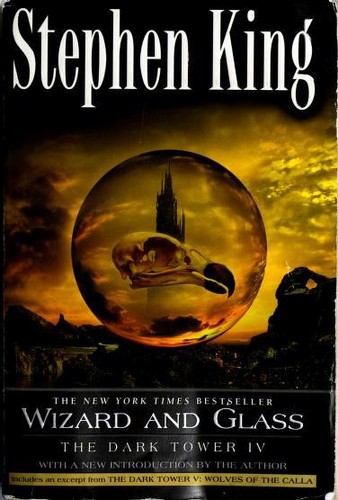Peter W. Flint commented on Wizard and Glass by Stephen King (The Dark Tower IV)
Susan and Roland are now deep into their affair as the tension of the adjacent political arc builds. Roland’s companions express dismay at their friend’s loss of objectivity in fulfilling the obligations of their purpose in Mejis.
Where initially I related to Roland and Susan’s dynamic as their attraction budded into a relationship, I’m now seeing where they depart from my own story. Both characters seem drawn to each other due to their loss of innocence; believing the world to be a certain way and coming to learn it is more complex. Each beginning to come into their own agency as a result, but lacking any real experience. Roland’s injury is learning of his mother’s indiscretions, her weakness (as he sees it), and inability withstand temptation despite her devotion to her son and family. Susan’s injury is the loss of her father and ensuing circumstances that lead her to agree to become a concubine, then to learn that her fathers death and those circumstances were engineered by darker forces of politics and greed. In a way, their union is reclaiming that loss of innocence. Forming a youthful alliance against the machinations of the world of adults. But for both, the core wound occurs as a threshold into adolescence. Each received love and attention from their parents then lost it.
For some, including myself, the core wound is deeper and goes much further back. The loss of innocence occurs before memory can form, the experience named, and the remedy identified. It becomes a formative psychic event that is only available to us as hearsay. Our process of reclamation and healing is not as simple.

